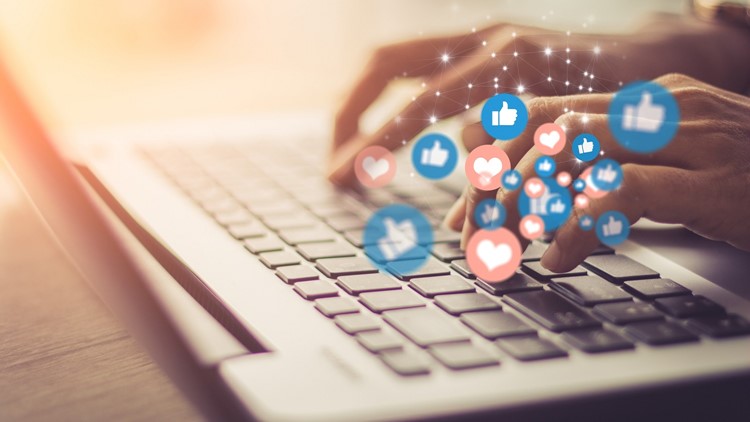INDIANAPOLIS — In an era dominated by digital connections, understanding social media has become imperative for parents concerned about their child's well-being.
WTHR's educational expert, Jennifer Brinker from Greenwood Middle School, shared tips on how to help your children navigate social media.
Here's a look into their conversation:
Matthew Fultz - "WTHR: Mrs. Brinker, what would you say are the benefits of social media?"
Mrs. Brinker - "With proper usage, social media can be not only entertaining for kids, but can also provide social opportunities, be educational, and can be a great opportunity for creativity and self-expression. The problem is that oftentimes kids are given access without instruction, and that is when it can become dangerous."
Matthew Fultz - WTHR: You mention the dangers, what would you say the greatest drawbacks are?
Mrs. Brinker - "Well there are obviously privacy concerns with social media where kids can be exposed to online predators, which is very concerning. As a school administrator, I see huge issues with cyberbullying. Kids-well really all people-are much more bold behind a screen. While the bullying we might have seen growing up does still exist, it has changed greatly and moved to online. Bullies will consistently create fake profiles so it is difficult to track where the bullying is coming from. All of this cyber-bullying and other factors of social media lead to what I think is the most concerning, which are the mental health issues that are results of social media."
Matthew Fultz - "Tell us more about how social media is creating these mental health issues?"
Mrs. Brinker - "Social media can easily be linked to issues with depression and anxiety. Pre-teens and teens are already developmentally struggling with self-esteem and comparing themselves harshly against others. Social media floods kids with images that are unrealistic and unattainable. It can be isolating for students as they see friends hanging out without them. I see several students who are addicted to social media in a way that affects their physical health, lack of sleep and activity, and inability to connect face to face with others. Finally, students can seek validation from a number of likes on a post and can be completely defeating when those expectations aren't met."
Matthew Fultz - "What can parents do to help protect their children from these dangers?"
Mrs. Brinker - "The first thing that I would suggest is wait as long as possible and make sure you have educated your child on digital literacy before they ever are signed up for an account. You wouldn't hand your child keys to a car without them going through some driving instruction and social media should be no different. There are websites that can guide you through this like Common Sense Media. Once you have educated your child and yourself, set limits on usage. I understand privacy for your kids, but you as a parent need to be monitoring their content. That means looking at their physical phones as well as their accounts. Kids can always be one step ahead of the adults on where to hide apps, you have to research and not assume "My child would never!"-you were a kid once-you need to remember that and think of mistakes you could have made with these tools and then help your child navigate that landscape."
Matthew Fultz - "Final advice?"
Mrs. Brinker - "Encourage offline activities. There are so many benefits that come with technology, but nothing can replace face to face interactions and activities for their minds and bodies."



